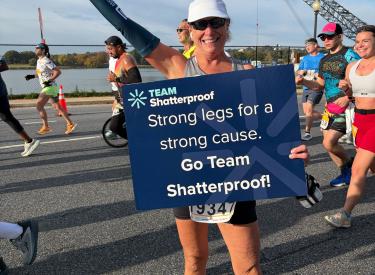
Methadone Clinics and the Importance of Medication-Assisted Treatment
I've spent the last two years working in a Methadone clinic and I have seen the community I live in be extremely ugly to the clients I work with.
A lot of my time is spent helping our clients look for sober living or recovery homes. Their optimism wanes as they are routinely turned away by such facilities for being deemed “not sober” because the medication they take for addiction treatment is methadone. It's awful to watch this replay client after client.
Treatment programs will also dismiss methadone clients, insisting that they detox from the very medication that may be saving their lives.
My Personal Connection to Substance Use Disorder
My own daughter struggles with opiate use disorder. She's been to several treatment centers and has taken every medication except for methadone. This is because often the stigma of being on drugs is nowhere near as bad as the stigma of methadone.
I have lived in the same neighborhood that I work in for 17 years and I often hear community members remark: "That methadone clinic is awful, look at all those people they ‘brought’ here." In truth, methadone clinics don't open in neighborhoods unless there is a need for them. Clinics study the demographics, overdose rates, substance-related deaths, and arrests before even considering opening a new clinic.
While doing community outreach throughout the week, I introduce myself as a person in long-term recovery in the hope of breaking the stigma around addiction. I go to high school football games, grocery stores, parks, and churches, and I’ll share a little bit of my story to anyone who will listen. More times than not people can relate because they have someone in their life who struggles with addiction.
The Stigma Against Methadone Clinics
They’re open about telling me that the judgment around methadone as a medication for addiction treatment can be just as stigmatizing as the disease. They’re worried their loved one would be judged while even in recovery. It also breaks my heart how many people miss methadone doses because they are hiding their treatment from visiting friends or family.
We have clients who receive incredible job offers but when it is time to do a urine test to begin employment they back out, not wanting anyone to know they're on methadone.
Looking to the Future
I often say that one of my main goals in doing community outreach is to one day have neighboring businesses excited to have us next door. People have such a hard time seeking treatment because of the misconception that they are trading one drug for another. One of the most difficult tasks we have is explaining that that's not the case. I am so blessed and grateful to be able to work for a clinic that truly celebrates every client every single time they walk in the door. I would love to see more clinics celebrating everyday victories instead of the “dose and go” that often happens.
I love working with expecting mothers on methadone, I give them my all and encourage them to stick with treatment and have a healthy pregnancy. Those moms then go to deliver the baby but are met at the hospital by child protection services. They want to take the child rather than cheering the mom on for taking the right steps to give the baby a better life.
There are so many little things we can all do to make this world a better place starting with celebrating those that choose to improve their lives with mediation-assisted treatment.
Every clinic client is working on building a better, healthier foundation for generations to come. I would love to see people embrace the multiple paths to recovery, free of judgment and shame.
Kristen DeRamus is a Shatterproof Ambassador who works as a Certified Peer Support Specialist at Community Medical Services in Mesa, AZ.





